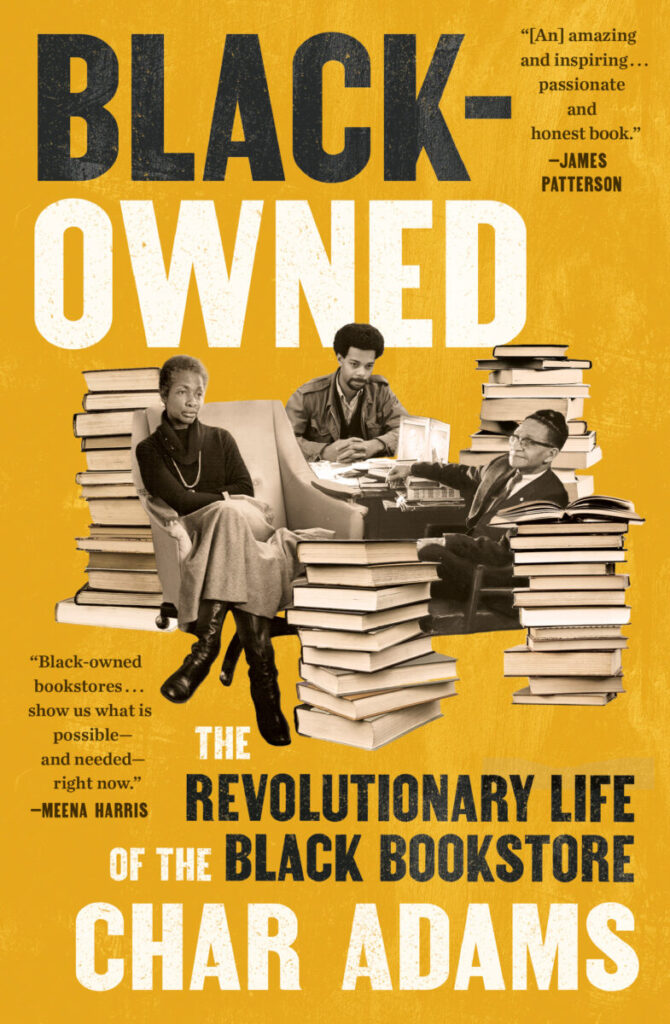By Terri Schlichenmeyer
You’re not planning on being shelfish.
But seriously, you’ve been waiting months for the release of your favorite author’s newest book and it’s in stores NOW. You have your copy, you’ll be the first one to open it, your easy chair is ready, no bookmarks needed. As in the new book “Black-Owned” by Char Adams, you knew just where to find it.
For many people, it’s a dream: owning a bookstore, talking about books all day, putting good reads into people’s hands. These are the kinds of stories Char Adams says she likes telling, and she was surprised when she started researching for this book. The tales of Black bookstore owners is one that’s rarely told.

A century later, Harlem’s Lewis Michaux became the first person to make a career with a bricks-and-mortar bookstore when he opened National Memorial African Book Store in 1933. He was a man of determination, having gotten his start “selling periodicals… with a bullhorn outside his shop” every day.
During the Civil Rights Movement, Black-owned bookstores such as the Drum and Spear in Washington D.C. Vaughn’s Bookstore in Detroit, and Liberation Bookstore in Harlem hand-picked their stock to reflect the battle for Black rights – and sometimes, that meant violence visited their stores.
Hue-Man Experience in Denver became a home for Black authors to launch new books and nurture careers; in the 1970s through the 1990s, Black publishers began to partner with America’s Black bookstores to further those careers and mainstream publishers eventually followed suit.
Today, Black-owned bookstores likely have a digital footprint to reach readers. Digital, however, “will not be the end of Black-owned bookstores…” says Adams.
“As long as the fight for Black liberation exists, so will these shops.”
Before you start reading “Black-Owned,” be sure you have a pen and notebook close. You’ll need them to write down all the bookstores you’ll want to visit, places you’ll regret missing and places you’ll learn about inside this fascinating volume.
But that’s just a part of what you’ll find here. Author Char Adams also tells the long story of Black authors and publishers, and the struggles both had – and sometimes still have – to get their books into readers’ hands. It’s a surprising journey that seems intuitive now, but it wasn’t so in the not-so-distant past. Bookstores and authors had to learn, by necessity, how to work together, which was an offshoot of the activism found in 1960s-era bookstores and which still continues today. It’s a nice, round circle of time that readers will appreciate.
Absolutely, this is a book meant for anyone who has a sky-high TBR pile and who’s heading to the bookstore this week. Find “Black-Owned.” It’s just what you want when you have a need for read.




